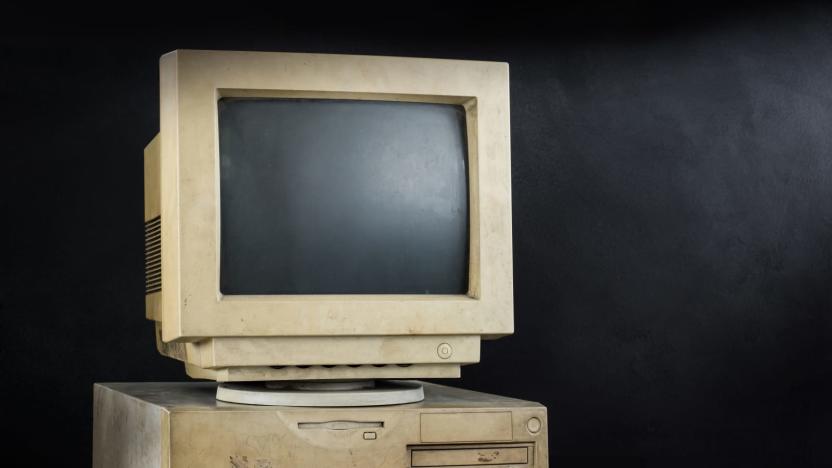copyrightoffice
Latest

The ESA says preserving old online games isn't 'necessary'
The video game industry as a whole does a poor job of preserving its history -- especially when it comes to online games. The Entertainment Software Association -- responsible for E3; counts Electronic Arts, Sony, Microsoft, Nintendo and Ubisoft as members -- is petitioning the US Copyright Office to not make DMCA exemptions for abandoned online multiplayer games. It's an effort to block the folks at the Museum of Art and Digital Entertainment in California who would like to see an exemption made to how the DMCA treats titles like the original Everquest.

Publishers are fighting to keep abandoned games dead
The Electronic Frontier Foundation, a non-profit group that defends civil liberties in the digital world, is facing off against the Entertainment Software Association, the organization that represents most major video game publishers in the US. The EFF wants to allow players to put abandoned games back online and has asked the US Copyright Office for an exemption from the Digital Millennium Copyright Act. This would allow players to legally modify the code of online games that are no longer supported by publishers, in the hope of reconnecting these titles to new, third-party servers. This includes games like Battlefield 1942, Star Wars: Battlefront, SOCOM 4, Resistance: Fall of Man and Mario Kart Wii. Many modern games rely on servers to function; if Activision pulled the plug on Destiny, for example, even its single-player campaign would disappear, since the entire game needs an online connection.

RIAA says consumers shouldn't expect DRM servers to run forever
Man, these Copyright Office triennial DMCA hearings seem to be some kind of competition for media-industry lawyers to present ridiculous arguments -- just a couple months after the MPAA tried to convince us that videotaping DVDs was an acceptable alternative to ripping, the RIAA's claiming that consumers shouldn't expect their DRM servers to stay online and allow them to play their music to play forever. No joke. The argument comes as the Copyright Office decides whether or not to allow a DMCA exemption for breaking DRM, and RIAA lawyer Steven Metalitz's position is that copyright owners shouldn't be required to "provide consumers with perpetual access to creative works," since "no other product or service providers are held to such lofty standards." Of course, that's only partially true, since properly maintained physical media and DRM-free content theoretically can be played forever, but why acknowledge reality when you can jack up your legal bills making completely absurd arguments that make your porcine, slowly-decaying clients seem even more doomed than before?

MPAA suggests teachers videotape TVs instead of ripping DVDs. Seriously.
So the Copyright Office is currently in the middle reviewing proposed exceptions to the DMCA, and one of the proposals on the table would allow teachers and students to rip DVDs and edit them for use in the classroom. Open and shut, right? Not if you're the MPAA and gearing up to litigate the legality of ripping -- it's trying to convince the rulemaking committee that videotaping a flatscreen is an acceptable alternative. Seriously. It's hard to say if we've ever seen an organization make a more tone-deaf, flailing argument than this. Take a good look, kids. This is what an industry looks like right before it dies. Video after the break.[Via BoingBoing]

Copyright Office rules that consumers can legally unlock cellphones
Looking for a reason to be thankful today (besides the fact that Engadget writers snubbed their families in order to toil through the holiday and bring you your daily dose of gadget news)? Well look no further than Librarian of Congress and copyright czar James H. Billington, who has bequeathed a wonderful gift upon millions of cellphone users by granting an exemption wherein consumers may legally break the software locks on their handsets in order to transfer service to another carrier. That's right, starting on Monday you'll be able to say screw you to Cingular or ta ta to T-Mobile and keep rocking your precious RAZR even after you've jumped ship and signed up with a new provider. The exemption is one of a record six granted by the Copyright Office on Wednesday, and was announced so unexpectedly, that even the EFF's Fred von Lohmann admitted that he was "surprised and pleased" by the development. So go forth, friends, and use this new info to either make the switch or squeeze a better deal out of your current provider -- just remember, no matter how hard you try, you're just not gonna be able to get that unlocked GSM phone to play nice with Sprint or Verizon.[Thanks to everyone who sent this in]

